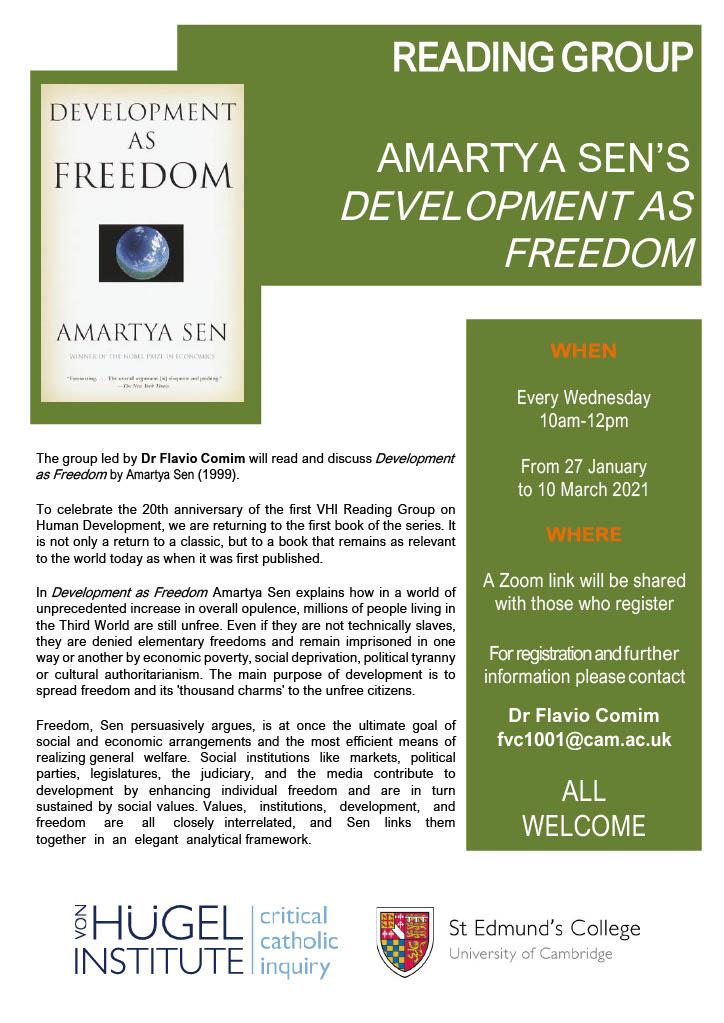
READING GROUP on HUMAN DEVELOPMENT - LENT 2021
To celebrate the 20th anniversary of the first VHI Reading Group on Human Development, we are returning to the first book of the series: Amartya Sen’s 1999 Development as Freedom. It is not only a return to a classic, but to a book that remains as relevant to the world today as when it was first published. Our sessions will take place online, via Zoom.
WHEN
Wednesdays, 10 am - 12 noon, starting on 27th January, until 10th March.
WHERE
A Zoom link will be shared with those who register. For registration and further information, please contact Dr Flavio Comim, fvc1001@cam.ac.uk.
HOW IT WORKS
Participants present different chapters, followed by discussions. During the first session Dr Comim will give an introduction to the volume and all chapters will be assigned for presentation.
ABOUT THE BOOK
In Development as Freedom Amartya Sen explains how in a world of unprecedented increase in overall opulence, millions of people living in the Third World are still unfree. Even if they are not technically slaves, they are denied elementary freedoms and remain imprisoned in one way or another by economic poverty, social deprivation, political tyranny or cultural authoritarianism. The main purpose of development is to spread freedom and its 'thousand charms' to the unfree citizens. Freedom, Sen persuasively argues, is at once the ultimate goal of social and economic arrangements and the most efficient means of realizing general welfare. Social institutions like markets, political parties, legislatures, the judiciary, and the media contribute to development by enhancing individual freedom and are in turn sustained by social values. Values, institutions, development, and freedom are all closely interrelated, and Sen links them together in an elegant analytical framework.
“Amartya Sen has made several key contributions to research on fundamental problems in welfare economics. By combining tools from economics and philosophy, he has restored an ethical dimension to the discussion of vital economic problems.” (From the Royal Swedish Academy Announcement of the Award of the 1998 Nobel Prize in Economic Science)
“The world's poor and dispossessed could have no more articulate or insightful a champion among economists than Amartya Sen. By showing that the quality of our lives should be measured not by our wealth but by our freedom, his writings have revolutionized the theory and practice of development. The United Nations, in its own development work, has benefited immensely from the wisdom and good sense of Professor Sen's views.” (Kofi A. Annan, seventh Secretary General of the United Nations)


